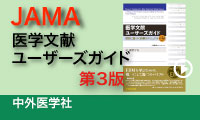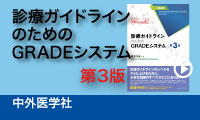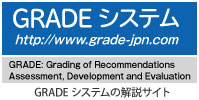Guyattらが、診療ガイドラインにおける疑問の定式化と重要なアウトカムの決定に関する以下の重要ポイントを発表したのが2010年なので、もう5年も経過したことになる。
|
Key points |
- GRADE requires a clear specification of the relevant setting, population, intervention, comparator(s), and outcomes.
- Outcomes of interest should be those important to patients: if patient-important outcomes are represented by a surrogate, they will frequently require rating down the quality of evidence for indirectness.
- Questions must be sufficiently specific: across the range of populations, interventions, and outcomes, a more or less similar effect must be plausible.
- For a guideline, an initial rating of the importance of outcomes should precede the review of the evidence, and this rating should be confirmed or revised following the evidence review.
|
Guyatt GH, et al. GRADE guidelines: 2. Framing the question and deciding on important outcomes. JCE 2011;64:395-400.
しかし、国内の医科GRADEガイドラインをみるかぎり、GRADEの基本が守られていないものが多い。
GRADEを利用した国内の診療ガイドライン
About aihara
Gordon GuyattやHolger Schunemann、Yngve Falck-YtterらとともにGRADE working groupメンバーとして、GRADEシステムの適切な普及につとめています。


